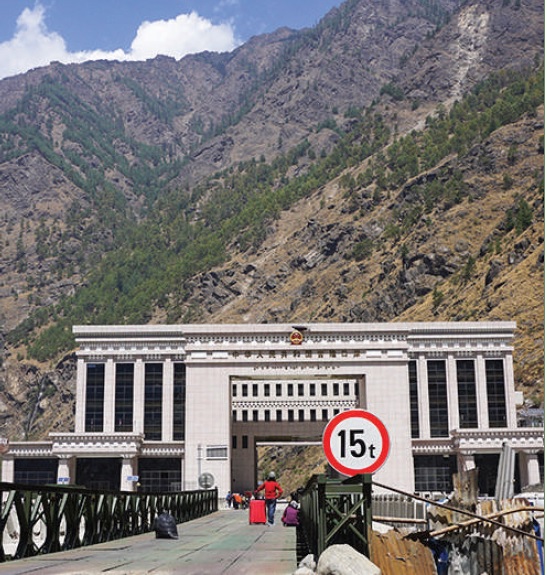Port and logistics operations in China are gradually resuming as the COVID-19 epidemic is being contained, but the Nepal authorities are wary and have refused to reopen the Rasuwagadi border until the virus is completely wiped off
Movement of trade between Nepal and China through the Rasuwagadi border was halted on January 29 due to the outbreak of Corona Virus. While port and logistics operations in China are gradually resuming in the background of strict quarantine measures, but the Nepal authorities have insisted to restrain movement of cross border trade until the virus effect has been completely contained.
The Rasuwagadi border, which is a major trading point between Nepal and China, was initially shut for 15 days on January 29. However, as the coronavirus epidemic showed no sign of abating, the government had decided to continue the closure of Rasuwagadi border until further notice. Hundreds of containers bound for both Nepal and China have been stalled at the border points for months. China falls behind India to be the second largest trading partner of Nepal. Nepal exported goods worth Rs 863 million to China in first five months of the current fiscal, it imported goods worth Rs 88.6 billion from there in the same period.
Nepal primarily exports handicraft goods to China and imports readymade garments, footwear, chemical fertilisers, electrical goods, machinery parts, pipes, raw silk, telecommunication and TV equipment and parts from China.
The Nepal-China trade was on further rise after the reopening of the Tatopani-Zhangmu border point in May last year. The border point had been out of service since Nepal’s deadly earthquake in 2015. Bilateral trade through the border point stood at around $4 million as of mid-July when the 2018-19 fiscal year ended. As of mid-November since the start of the 2019-20 fiscal year, total trade through the route has reached about $20 million.
The value of trade moving through Tatopani-Zhangmu border point was still low compared to that of the Rasuwagadhi-Geelong border point, but officials and traders believed the volume would grow gradually. Nepal exported goods worth around $3 million through Rasuwagadhi-Geelong border point and imported goods worth about $160 million during the first four months of this fiscal year.
“Trade through the Tatopani border point is on the rise, the Tatopani Customs collected revenue worth $2,25,910 in the first month of current fiscal and total revenue grew to $2.43 million during the four-month period,” revealed Krishna Bahadur Basnet, Chief Customs Officer, Tatopani Customs.
According to Basnet, most of the imported goods from China through the Tatopani border point were agriculture products such as apples. “Industrial goods have also been imported through this border point but at a very limited quantity,” he said, noting that importers have not been confident enough to import through this route because of the prolonged closure before its reopening. A major advantage to Tatopani border is the presence of a dry port at Larcha where stuffing and de-stuffing of containers and documentation work could be easily done without any parking problem for the cargo vehicles. The Tatopani border point had been the main route for inland trade between Nepal and China before its closure in 2015. Around 25 per cent of Nepal’s total trade with China took place through this border point as of fiscal year 2013-14, according to the Department of Customs.








